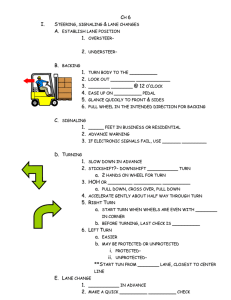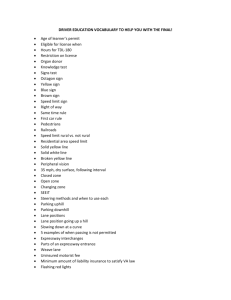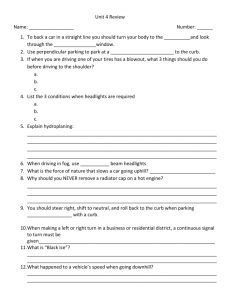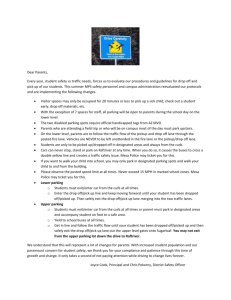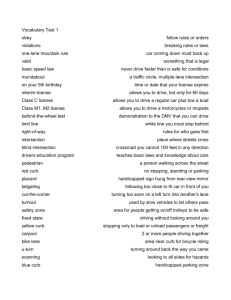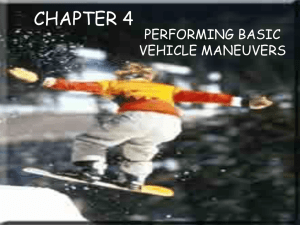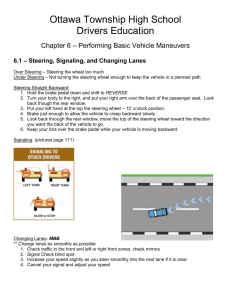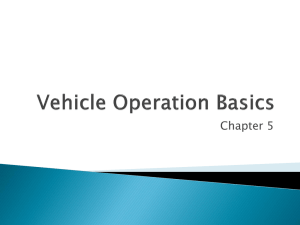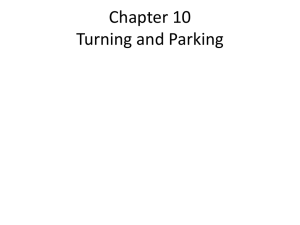Performing Basic Vehicle Maneuvers
advertisement
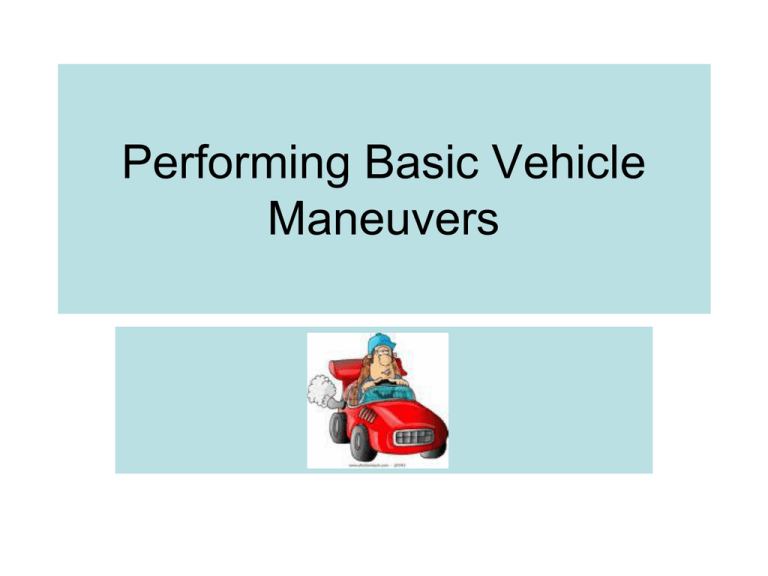
Performing Basic Vehicle Maneuvers Steering • What is the correct hand position? • Hand over hand steering. Can you demonstrate? • Push and Pull steering Turn Signals • Develop the habit of signaling every time you plan to turn, change lanes, slow, or stop. • Use your turn signal at least 100 feet before turning in a residential area and at least 200 feet if you are in the country or traveling fast. What do these hand signals mean? Changing Lanes • Change lanes to prepare for a turn. To get a better view. • Check mirrors, blind spots and road ahead. What is a shared left turn lane? • A center lane added to let you turn left from the middle of the block. 6.2 Making Turns and Turning the Vehicle Around • Backing Left and Right Before backing, check for traffic, pedestrians, parked vehicles, and any stationary objects. • Keep both hands on the wheel, turn in the direction you want the back of the car to go. • Back slowly. Make quick glances to the front and sides to be sure no one is near. U Turns – Are they safe? Legal? 3 pt Turnabout Three Point Turn • What are the disadvantages of a 3 point turnabout? Making Turns and Turning the Vehicle Around Making Turns and Turning the Vehicle Around Uphill Parking with a Curb • Signal over, shift to Neutral • Turn wheels to Left (away from the curb) • Roll to Curb • Parking Brake & Park to Uphill Parking with a Curb Uphill with No Curb What are the steps? • Signal & pull over • Turn wheels to Right • Parking Brake & Park Uphill with No Curb Downhill Parking • Signal & pull over to the curb • Shift to N roll to curb • Parking brake and Park • What do you do when leaving???? Hill Parking Angle Parking Is parking your car diagonally to the curb. Procedure • Signal and check for traffic • Position your vehicle approximately 6 feet from the parked cars and begin slowing down. • Pull forward until your front right bumper is just past the painted line on the pavement of the space you are parking in. • Turn the wheel sharply right. • Enter the space slowly and straighten out the wheels when you are centered in the space. • Pull forward until your car is in the space. Perpendicular Parking Is parking your car at a right angle to the curb. Procedure • Signal and check for traffic • Position your vehicle approximately 8 feet from the parked cars and begin slowing down. • Pull forward until your front right bumper is just past the painted line on the pavement of the space you are parking in. • Turn the wheel sharply right. • Enter the space slowly and straighten out the wheels when you are centered in the space. • Pull forward until your car is in the space. How not to parallel park Parallel Parking Parallel Parking • Start about 3 feet away from the first car with your back bumpers even. • Turn the wheel to the right & back slowly. Left turn from One Way to a One Way Street • Turn from the left lane into the left lane. One Way to a Two Way Street • Turn from the left lane on the one way street into the lane to the right of the yellow line. Two Way to a Two Way Street Two Way to a One Way Two Way to a Two Way Street Gas Station What do yellow lines mean? New Seat Belt Law
